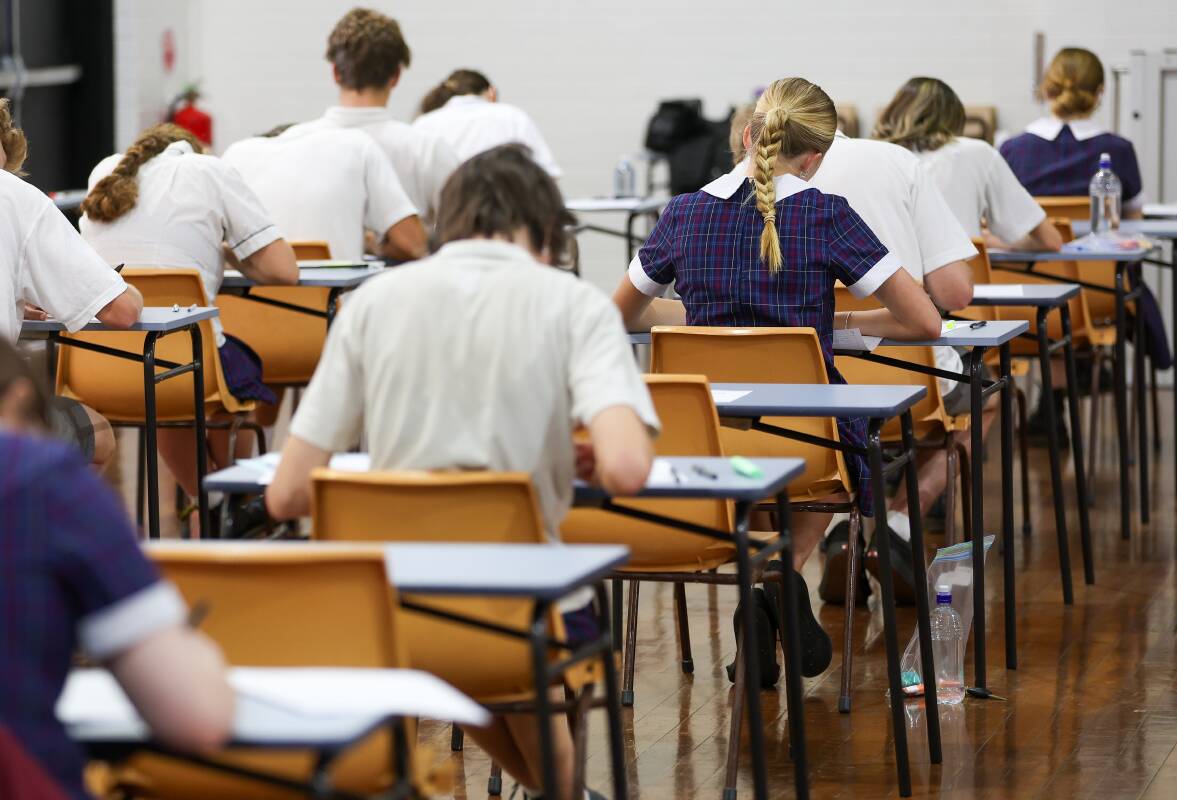
NEW data has revealed almost half of Hunter students are not completing year 12, which is roughly 25 per centage points lower than the national average.
Numbers released by the Department of Education showed only 54.9 per cent of students in the Newcastle, Lake Macquarie and Central Coast region completed their higher school certificate in 2023.
The region's year 12 graduation rates have been on a steady decline, dropping 5.5 per cent in three years.
University of Newcastle deputy vice chancellor professor Mark Hoffman said nine out of 10 jobs would require a higher education in the future.
"High school is an important part of preparing students for the future and equipping them with skills that will see them succeed in life, so we encourage everyone to finish year 12," he said.
But retention rates have dropped significantly in the Hunter. In 2021, 60.4 per cent of the region's students completed year 12. This dropped to 57 per cent in 2022.
In the North West NSW statistical area, which stretches from Orana to the Hunter Valley and includes the New England region, only 47.9 per cent completed year 12 last year, compared to 51.4 per cent in 2021.
The Newcastle-Hunter region is 24 percentage points lower than the national average, according to data recently released by the Australian Bureau of Statistics data, which showed 79.1 per cent of students completed year 12 last year in Australia.
A NSW Department of Education spokesperson said they were committed to offering more options to keep students in schools, such as School-Based Apprenticeships and Traineeships.
"The program gives students the opportunity to obtain nationally recognised Vocational Education and Training (VET) qualifications alongside their Higher School Certificate (HSC), fostering a comprehensive and practical approach to education and retention," they said.
Business Hunter CEO Bob Hawes said the region traditioinally had been able to offer school leavers a lot of positions through VET and TAFE studies, but "it doesn't necessarily mean it's the best way of doing it".
"The issue of retention here in the region has been an ongoing concern in the Hunter for quite some time," he said.
Mr Hawes said School-Based Apprenticeships and Traineeships "are something Business Hunter and Business NSW and other industry groups have been trying to support for some time".
He said the Hunter's biggest employers were the health, education, Defence and construction sectors, which were "diverse and do qualify kids to leave school".
He said while resources to improve retention rates were useful, it was important to listen and understand what students want.
"What are their expectations and can they be met? And if they're not realistic - students will make decisions about how to get themselves up the ladder," he said.
"It is critical that we get back and really get into the minds of what the kids are thinking, because if we don't set up realistic pathways for them when they are in school, it's probable this statistic may continue to decline," he said.
Professor Hoffman said the University of Newcastle was working with schools to encourage students to remain in high school and then to complete higher education, as well as TAFE NSW to create pathways for students to complete a degree.
"We offered early entry to students in September, which aimed to take some of the pressure off students to allow them to focus on completing high school," he said.
"We know high school is important, though around half of our domestic students don't come directly to our University from High School. Many students join us a couple of years after they finish school, wanting to upskill and retrain after they have spent time in the workforce or completed trades."







